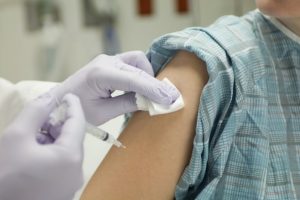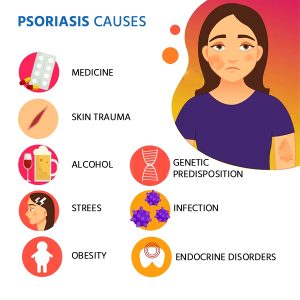7 myths about thyroid cancer, what is the truth? Today, I met a young “old” patient in the clinic, young because she is a 25-year-old youth, “old” because she has been suffering from the disease for years, so she came to our clinic “old”. She was young because she was a 25-year-old, and “old” because she had been suffering from the disease for many years, so she came to my clinic. She had heard a lot of myths about thyroid cancer after surgery, and she always felt uncomfortable about her condition, treatment choice, and current thyroid hormone suppression treatment, etc. She claimed that it was her “hard wound” and could not let go of it. …
Routine screening for thyroid cancer is not recommended
Myth 1. Thyroid cancer should be detected and treated early to be effective!
This is a misconception. From the in-depth understanding and knowledge of thyroid cancer nowadays, thyroid cancer will not bring obvious adverse consequences even if it is not detected in time. On the contrary, early detection will increase the psychological burden of patients and their families, and cases of over-treatment are not uncommon.
The current international updated view on thyroid cancer diagnosis and treatment is that routine screening of thyroid cancer is not recommended, and for some thyroid cancers with low risk level, a conservative and regular observation approach can be adopted, and not necessarily every patient needs active surgical treatment.
Thyroid ablation therapy
Myth 2. Ablation is recommended to treat thyroid cancer without surgery or medication!
This is a misconception. Everything has its strengths and weaknesses.
Not every thyroid cancer is suitable for ablative treatment. At present, it is limited to micro papillary cancer with small lesions and no obvious invasion or metastasis, and this technology has been carried out in thyroid cancer for a limited time, so the long-term effect needs further observation.
From the existing situation, the situation after surgery has a lot to do with the operation of the doctor, and some patients have the problem of residual lesions and recurrence after surgery, so any treatment needs to find the right indications, and we should not only see the bright side.
Regular medication and regular review
Legend 3: You only need to take medicine for 5 years after thyroid cancer surgery!
This is a misconception. It is a misconception. The medication after thyroid cancer surgery is usually required for life.
Firstly, because the thyroid gland is missing a large part or all of it, the original function of the thyroid gland needs to be replaced by medication.
Secondly, medication can inhibit the recurrence of the tumor.
Although thyroid cancer is called “lazy cancer”, it is still a malignant tumor after all, you can’t “not take bean bag as dry food”, so the fight against cancer should be continuous.
Avoid the risk by taking the right medicine
Legend 4: Taking levothyroxine has a lot of side effects!
This is a misconception. As long as the medication is administered under the guidance of a doctor and reviewed regularly, there will be no obvious side effects, and even if there are side effects, they are controllable and can be remedied by optimizing the dose of the medication or taking other measures.
Therefore, do not be too much reluctant to use the medication.
It is important to emphasize that the dosage of the medication must be appropriate, just like putting salt in a stir-fry, putting too much or too little will not make a good dish.
Recommended iodized salt
Legend 5: You cannot eat iodine after thyroid cancer surgery!
This is a misconception. After thyroid cancer surgery, there is no dietary requirement except for iodine treatment or certain special tests.
There is no need to avoid iodine after thyroid cancer surgery and you can still eat iodized salt like your family.
Cruciferous vegetables are not restricted
Myth 6. Cruciferous vegetables are not allowed after thyroid cancer surgery!
This is a misconception. Most of the vegetables that we can eat in our daily life are classified as cruciferous.
These vegetables can be eaten after thyroid cancer surgery. Even if these vegetables contain goiter-causing substances, the amount we eat every day is far from goiter-causing, let alone cancer-causing, but a healthy and balanced diet is the best “tool” to prevent and fight cancer.
Spicy food is not restricted
Legend 7. Spicy food is not allowed after thyroid cancer surgery!
This is a misconception. After the surgery, the nerves in the neck will be damaged and the laryngopharynx may be sensitive, so eating these foods will cause discomfort.


